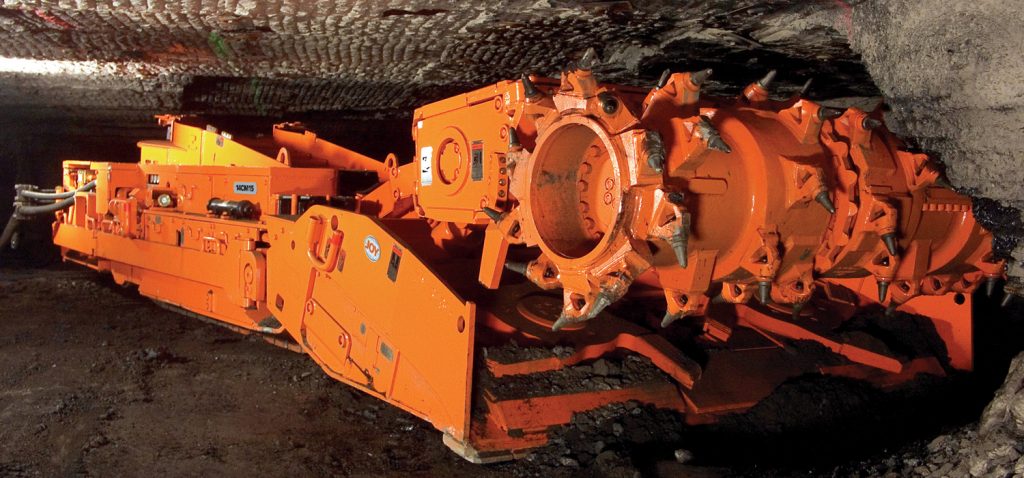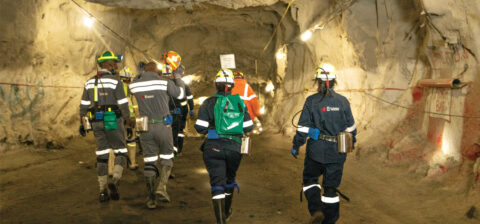SA Mining
Driving Diversity To Transform The Economy
The benefits of transformation in the mining industry are legion, according to Joy Global, a broad-based black economic empowerment (BBBEE) level one contributor and part of the Komatsu Mining Group.
A global leader in the supply of mining, construction, earthmoving and utility equipment, Joy Global has long recognised the big picture behind the country’s transformation drive.
To be a level one contributor is to demonstrate that the organisation has taken transformation seriously, transforming both the organisation internally, as well as its supplier base. In this way, they can achieve their goal of more accurately reflecting the demographics of South Africa, according to Dinah Williams, transformation director at Joy Global.
“From a supplier perspective, it is crucial to transform this arena by identifying new suppliers, particularly those that are black-owned businesses, and bringing these new players into the supply chain, to help diversify the market. The goal is to nudge your existing suppliers towards greater levels of transformation, while also exposing new suppliers to your business,” she says.
“You should also play a role in upskilling previously disadvantaged employees through learnerships, apprenticeships and bursaries. By providing these individuals with access to hard and soft skills, you will be able to make your organisation more representative of the national demographics.”
She suggests that mining firms also make longer-term plans around what critical skills the industry needs and then cater for this by helping to upskill the local community.
“This can be done via learnerships, apprenticeships and bursaries, with the company in a sense ‘planting its own trees’, by inculcating skills in the community and creating employment opportunities through this.
“At the same time, they should focus on consistently hiring skilled black managers, in order to have diversified control in management, and to effect true change. The other aspect here is to focus on the retention of these managers, as they will, of course, be sought after by the competition.”
The STEM challenge
Ultimately, transformation is a key driver in helping the local communities to break the poverty cycle. Companies should play intimate roles in the communities in which they operate, she says.
“When we talk of socio-economic development, we don’t mean handouts, but rather having the community identify income-generating projects. It’s basically teaching them to fish, rather than simply giving them a fish.”
Joy Global approaches such community programmes from two angles, she says – the Foundation Trust and its internal socio-economic development unit.
“For example, we sponsor the Jumping Kids Project, which assists with the manufacture of prosthetics for children. Then we also offer bursaries to teens from destitute backgrounds, with the overarching goal of improving the pool of engineering skills in SA.”
Williams says it’s worth noting that the lack of science, technology, engineering and maths (STEM) skills in SA means companies should seek to influence their growth and development.
“This is why the Komatsu Foundation Trust sponsors a STEM project in a number of schools, designed to encourage the uptake of these subjects among children, in order to grow the STEM base further.”
Williams indicates that the company also understands clearly that success is a team effort, which is why it has an employee voluntary scheme whereby staff are asked to identify community NGOs that need assistance. In this way, help is delivered directly to relevant communities, through Joy Global, working in tandem with these NGOs.
“We feel having what is essentially a partnership with our employees, where they point us in the right direction as to where additional assistance is required, provides for wonderful and targeted engagement, and allows everyone to play a role in the broader transformation agenda.”
Benefits of diversity
“Transformation is also not merely a compliance issue; it holds significant benefits for the organisation as well. Today, transformed businesses attract talent much easier, as few people want to work for untransformed businesses.
“It also has a business impact on your customers, as if your company is diverse and transformed, they will also benefit on their scorecards,” she says.
“We believe it is a business imperative to be rated at BBBEE level one, and we have had to work hard to maintain this status. We recognise it as being attractive to employees and customers, and thus we always remain motivated to retain this status.”
She is quick to point out that Joy Global, while focused on transformation, continues to also strive to achieve greater gender balance across all levels of the business. The Africa leadership team is reflective of this gender balance, with four women directors on a team of nine, with a fifth senior female leader – responsible for safety and quality – also sitting in, creating a genuine balance. This is vital, as women are able to bring new ideas and approaches to what has, for so long, been a male-dominated industry.
“And it’s not just their new ideas that have changed things: women coming into male-dominated industries have created the need for a huge rethink around many things. These range from how to manufacture overalls designed for women, to how to accommodate women with ablution facilities or the various maternity issues that may arise.”
Asked about the broader mining sector, she explains that although there are pockets of effective transformation, for many there remains a long way to go, although most are taking steps towards greater levels of transformation. Williams adds that transformation is crucial in this sector, because it will inevitably have a downstream effect that could help to transform the broader economy.
“Ultimately, a mine is an engine of the economy and so it must play a role in transforming its local communities. In addition, since mines have huge downstream impacts, transformation is crucial for many of its partners and suppliers as well.”
She says without transformation, there won’t be enough diverse managers to manage a diverse workforce, suppliers won’t be properly transformed, and this will simply skew the economy further in the wrong direction.
“Joy Global understands that we cannot keep perpetuating an unequal economy, and transformation is the key to improving the lives of miners and those in local communities,” says Williams.







 Sign-up and receive the Business Media MAGS newsletter OR SA Mining newsletter straight to your inbox.
Sign-up and receive the Business Media MAGS newsletter OR SA Mining newsletter straight to your inbox.